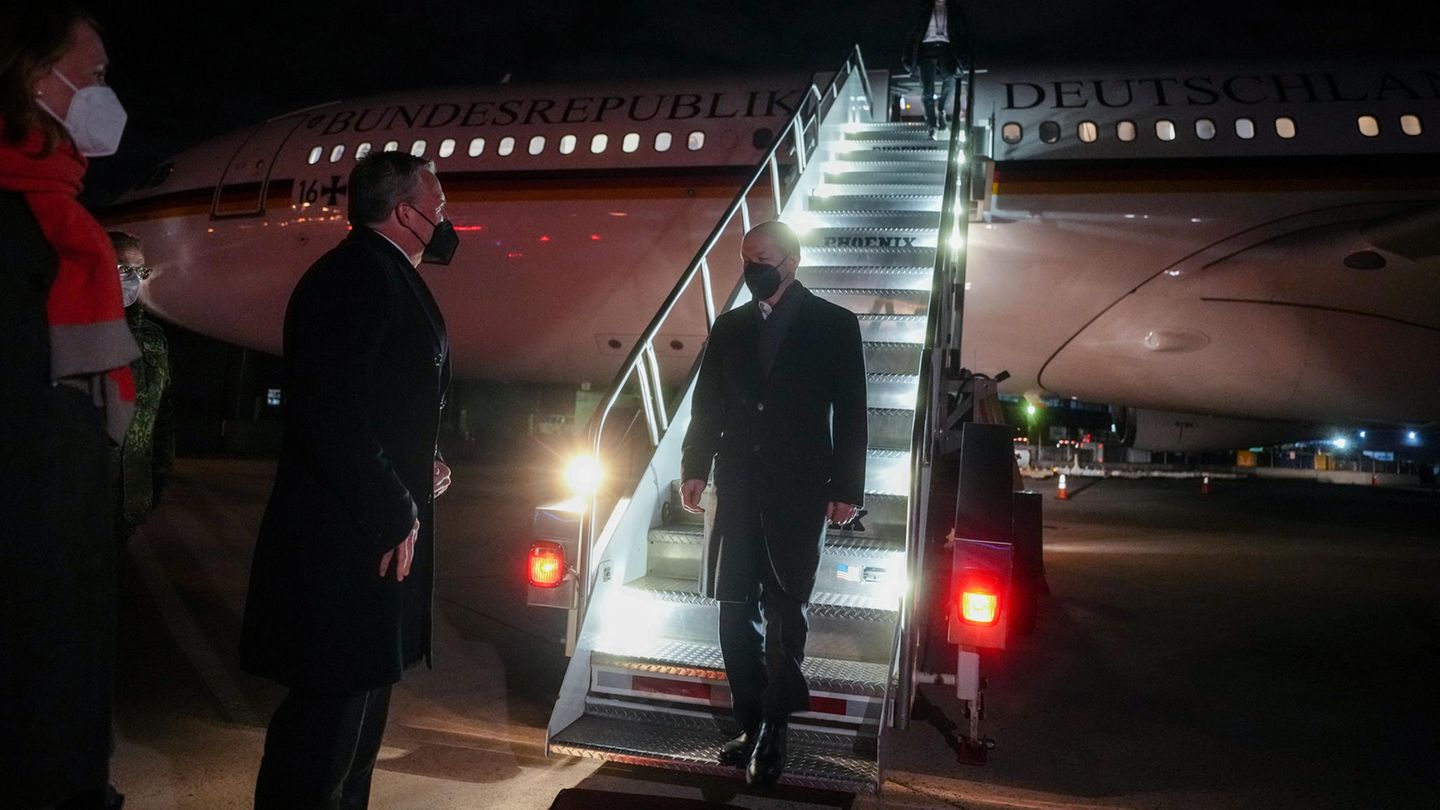No question: Germany’s reputation in Washington has been battered. A US newspaper even called Germany “a poor example of a US ally”. Can Chancellor Olaf Scholz turn the mood at his meeting with US President Biden?
Chancellor Olaf Scholz may have imagined his inaugural visit to US President Joe Biden differently. Together, the two statesmen could have celebrated the new beginning in transatlantic relations that Biden had called for in the White House on Monday. Since taking office a good year ago, the US President has repeatedly made it clear how important his relationship with Berlin is to him. Since the escalation in the Ukraine conflict, however, Germany’s image in the United States has been scratched. Scholz should now be faced with questions about the reliability of NATO partner Germany in Washington.
The Biden government is officially committed to Germany as an ally. Behind the diplomatic facade, however, discordant tones have long been mixed into the debate. The US and its allies are wondering “whether they can count on Germany in the Russia-Ukraine crisis,” the Wall Street Journal recently wrote. The US broadcaster NBC analyzed that the hesitant attitude of Europe’s leading economic power “threatening to undermine efforts to take a strong and united stand against Russian aggression”. The tabloid New York Post called Germany “a poor example of a US ally”.
Criticism in the USA is based on the following points, among others:
- NORTH STREAM 2: The Baltic Sea pipeline, which is supposed to bring gas from Russia to Germany bypassing Ukraine, has been the biggest point of contention between Washington and Berlin for years. Biden’s security advisor Jake Sullivan threatened Moscow on Sunday on NBC with the end of the project in the event of an invasion of Ukraine – but when asked, he did not want to say whether the federal government had made a corresponding commitment. There are doubts in the USA as to whether Scholz would really use Nord Stream 2 as a sanctions instrument in an emergency. The New York Post, for example, wrote: “It is by no means clear that Germany would give up the pipeline even if Russian tanks rolled towards Kiev.”
- WEAPONS SHIPMENTS: The federal government’s refusal to supply arms to Ukraine is causing irritation in the USA. Immediately before his departure for Washington on Sunday, Scholz confirmed on ARD that the federal government was sticking to this “clear course”. The US website “Defense News” recently criticized Germany’s “double standards” and pointed out that German arms sales reached a record level last year. “Predators like Putin like nothing better than prey that is kept weak,” wrote Defense News. “Germany shouldn’t become the Kremlin’s accomplice in this. Berlin should revise its current policy on arms exports to Ukraine.”
- RUSSIA: Critics complain that Germany is dependent on Russian President Vladimir Putin for energy – all the more so if Nord Stream 2 should one day go into operation. Germany also maintains close economic relations with Russia. Pro-Russian voices, such as those voiced by Naval Inspector Kay-Achim Schönbach, who later resigned, or by Putin’s friend and ex-Chancellor Gerhard Schröder, are also being carefully noted in Washington. A commentary in the conservative Wall Street Journal said that Germany “puts Russian interests ahead of those of the West.”
- NATO: Biden predecessor Donald Trump criticized what he saw as a lack of defense spending in Berlin. He argued that Germany was allowing the US to protect it while doing business with Putin. The criticism has become quieter, it has not gone silent. The Wall Street Journal accused Germany of “abandoning” the NATO goal that all allies should spend at least two percent of their gross domestic product (GDP) on defense by 2024. Scholz has not yet expressly committed to this goal. The fact that Germany was the weakest link in the alliance in the Ukraine crisis was what the SPD politician called a “wrong impression” on Sunday on ARD.
Call for help from Germany’s US ambassador: “Berlin, we have a problem”
The German ambassador in Washington, Emily Haber, recently reported to the Foreign Office: “Berlin, we have a problem.” In her letter, which was reported by “Der Spiegel” and whose authenticity was confirmed by the dpa, Haber described how Germany was being discredited in the USA as an “unreliable partner” because of the course in the Ukraine conflict. Because of the criticism, Haber felt compelled to publicly defend Germany in the United States – of all places on the Trump-friendly Fox News channel.
“You can’t just measure the support by what you do in military terms,” Haber told the television station, referring to German aid to Ukraine. “There is also support for the economy, there is financial support and there is humanitarian support. And it should be noted that Germany has been the largest donor to Ukraine in recent years, both bilaterally and within the European framework.”
Travel from Scholz a “rescue mission”?
So far, Germany has not got through with this message. The director of the Global Public Policy Institute in Berlin, Thorsten Benner, calls Scholz’s trip to the USA a “rescue mission”. On the website of Foreign Policy magazine, Benner wrote: “Scholz’s main task during his visit to Washington must be to restore German credibility.”
Source: Stern
David William is a talented author who has made a name for himself in the world of writing. He is a professional author who writes on a wide range of topics, from general interest to opinion news. David is currently working as a writer at 24 hours worlds where he brings his unique perspective and in-depth research to his articles, making them both informative and engaging.




